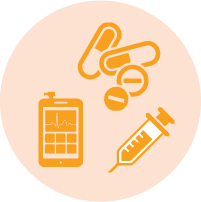

EDCTP portfolio: Emerging diseases
index


The CREDU project has developed systems to strengthen and streamline the activities of regulatory agencies and research ethics committees in Uganda.
Enhancing coordination of research oversight in Uganda

In Uganda, several bodies are involved in oversight of clinical research. These include the National Drug Authority, Uganda National Council for Science and Technology (UNCST), Uganda National Health Research Organisation, the Office of the President and research ethics committees.
It is important that these bodies protect the interests of research participants, and also operate efficiently to ensure the timely evaluation and implementation of safe and effective medical interventions.
The challenge

The CREDU project brought together Uganda’s research oversight bodies, a key academic centre (the Infectious Diseases Institute at Makerere University) and the Mbale Regional Referral Hospital. It aimed to strengthen the capacity of the individual agencies, improve coordination among them, improve the quality of ethics review, and enhance networking across regulatory, clinical and research communities in Uganda and beyond.
Individual capacity building focused on ethics and regulatory training, exchange visits, and mentoring and placements at institutions outside Uganda. A one-week good regulatory practice course was developed for members of research ethics committees and staff of research oversight bodies.
To promote efficiency and coordination, a shared Clinical Research Information Management System (CRIMS) was developed, for use by research oversight bodies and research ethics committees. An introductory training workshop was attended by more than 100 participants from stakeholder organisations. As well as supporting more harmonised practice, CRIMS provides a convenient point of contact for researchers, providing an interface for data capture, data management, data validation, quality control and regulatory compliance with clinical research management processes.
To enhance the quality of ethical review of research proposals, the CREDU project has strengthened the national research ethics committees accreditation system. The national accreditation committee has learned from US models and now plays a more active role in monitoring of ethics committee activities. More than 300 committee members, administrative staff and institutional heads have been trained in research ethics, ethics committee administration and review of research proposals.
The project

The CREDU project has provided tools to harmonise and coordinate regulatory and ethics review activities in Uganda. As well as strengthening systems to protect the health and wellbeing of those participating in clinical research, the project has helped to generate a more supportive environment for clinical research in Uganda.
Impact


“
test the safety and efficacy of this new formulation in young children
”
Bringing antiretroviral drugs to children

The CHAPAS trials have ensured that many more children with HIV have benefited
from life-saving antiretrovirals.
EDCTP portfolio: HIV & HIV-associated infections
The challenge
In Uganda, several bodies are involved in oversight of clinical research. These include the National Drug Authority, Uganda National Council for Science and Technology (UNCST), Uganda National Health Research Organisation, the Office of the President and research ethics committees.
It is important that these bodies protect the interests of research participants, and also operate efficiently to ensure the timely evaluation and implementation of safe and effective medical interventions.

The CREDU project brought together Uganda’s research oversight bodies, a key academic centre (the Infectious Diseases Institute at Makerere University) and the Mbale Regional Referral Hospital. It aimed to strengthen the capacity of the individual agencies, improve coordination among them, improve the quality of ethics review, and enhance networking across regulatory, clinical and research communities in Uganda and beyond.
Individual capacity building focused on ethics and regulatory training, exchange visits, and mentoring and placements at institutions outside Uganda. A one-week good regulatory practice course was developed for members of research ethics committees and staff of research oversight bodies.
To promote efficiency and coordination, a shared Clinical Research Information Management System (CRIMS) was developed, for use by research oversight bodies and research ethics committees. An introductory training workshop was attended by more than 100 participants from stakeholder organisations. As well as supporting more harmonised practice, CRIMS provides a convenient point of contact for researchers, providing an interface for data capture, data management, data validation, quality control and regulatory compliance with clinical research management processes.
To enhance the quality of ethical review of research proposals, the CREDU project has strengthened the national research ethics committees accreditation system. The national accreditation committee has learned from US models and now plays a more active role in monitoring of ethics committee activities. More than 300 committee members, administrative staff and institutional heads have been trained in research ethics, ethics committee administration and review of research proposals.
The project
The later CHAPAS-3 trial compared the efficacy and safety of three fixed-dose combinations including two without stavudine (found to have some long-term side effects in adults, leading to a recommendation that its use be discontinued in children). The trial the first of its kind in Africa studied nearly 500 children at four sites in two African countries.
The CREDU project has provided tools to harmonise and coordinate regulatory and ethics review activities in Uganda. As well as strengthening systems to protect the health and wellbeing of those participating in clinical research, the project has helped to generate a more supportive environment for clinical research in Uganda.
ratios forfixed-dose combinations and on appropriatedosage according to weight.
The CHAPAS-3 trial confirmed the effectiveness of fixed-dose combinations, providing further impetus to the rollout of antiretrovirals to children. Its evidence on abacavir informed the WHO recommendation of abacavir-containing combinations for first-line therapy in children. Trial data have also been used to support applications for regulatory approval for new scored efavirenz tablets.
Impact
L’homme RF et al. Nevirapine, stavudine and lamivudine pharmacokinetics in African children on paediatric fixed-dose combination tablets. AIDS. 2008;22(5):557–65.
Mulenga V et al. Abacavir, zidovudine, or stavudine as paediatric tablets for African HIVinfected children (CHAPAS-3): an open-label, parallel-group, randomised controlled trial. Lancet Infect Dis. 2016;16(2):169–79.
WHO. Guidelines on the use of antiretroviral drugs for treating and preventing HIV infection: recommendations for a public health approach. 2010.
WHO. Consolidated guidelines on the use of antiretroviral drugs
for treating and preventing
HIV infection: Recommendations for a public health approach
(second edition). 2016
Projects: Children with HIV in Africa Pharmacokinetics and Adherence of Simple Antiretroviral Regimens (CHAPAS): CHAPAS-1 and -3
Project lead: Professor Chifumbe Chintu, University Teaching Hospital, Zambia (CHAPAS-1); Dr Veronica Mulenga, University Teaching Hospital, Zambia (CHAPAS-3)
Target population(s): Children with HIV
Sample size: 71 (CHAPAS-1); 480 (CHAPAS-3)
Countries involved: Ireland, the Netherlands, the UK, the USA, Zambia (CHAPAS-1); Uganda, Zambia (CHAPAS-3)
Project duration: 2005–2009 (CHAPAS-1); 2010 –2011 (CHAPAS-3)
EDCTP funding: €1.2M (CHAPAS-1); €4.6M (CHAPAS-3)
Total project funding: €1.2M (CHAPAS-1); €5.0M